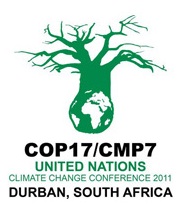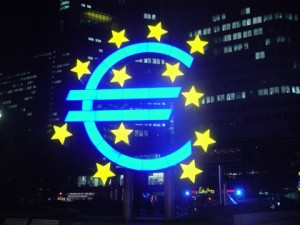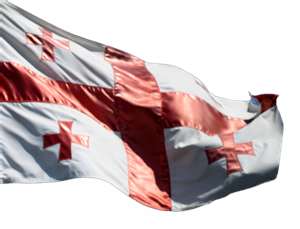
EU and China’s institutional diplomacy in the field of climate change.
Forthcoming Occasional Paper to be published by the European Union Institute of Security Studies (EU ISS). Author: Pietro De Matteis. Summary and Policy Recommendations. This Occasional Paper aims at giving another perspective on the relevance of climate change for the EU’s foreign policy. Considering its linkages with various policy areas such as energy security, economic growth, foreign policy and even political stability, climate change is a major “game-changer” in international relations, and constitute a significant opportunity to reshape the international order according to the new global equilibria. As such, the set up of the climate change regime constitutes for the EU both an opportunity and a threat, in as much as it may either accelerate Europe’s decline as a …

Europe in the Soup: Three Scenarios
In ‘Duck Soup‘ – the 1930s Marx brothers’ film – a powerful rich lady tells the ailing government of Freedonia, she will only bail them out with another loan, if her favourite – Groucho Marx – becomes president: chaos follows. Europe may or may not escape chaos as the euro crisis unfolds. But when asking what sort of European Union will emerge out of the Duck Soup of the crisis, there are no upbeat scenarios. Desperate Politics drives all scenarios The euro crisis has battered the EU’s political dynamics, clout and democratic credentials. The sight of technocrats running the Greek and Italian governments has been criticised as anti-democratic . But Europe’s political failings go beyond this. Neither Angela Merkel nor …

Europe’s political crisis at heart of eurozone meltdown
The first week of November 2011 has been a tipping point; the moment when it belatedly dawned on pundits and politicians alike that the euro crisis at heart is political – and that if it’s politics versus the markets, then politics is losing hands down for now. From outgoing Greek Prime Minister Papandreou’s torpedoing of the G20 by his ‘bolt from the blue’ referendum call, swiftly withdrawn under outraged pressure from the Merkel-Sarkozy tandem, to Italy’s Berlusconi teetering on the edge, then announcing he will resign and abandon his attempts to cling to power, to Sarkozy himself introducing larger than expected ‘austerity’ cuts despite the upcoming presidential election in 2012 – politics is back. But normal EU politics this is …
No News is Good News in Poland
Poland used to be known for its dramatic events, and fury of news. This is no longer the case. While most of Europe is boiling, Poland is now an oasis of stability, almost boredom. Its economy keeps growing, but not spectacularly. Its handling of the EU presidency is smooth, but deals with marginal matters. And in this week’s parliamentary elections, after a very dull electoral campaign, Poles again voted in the same two-party coalition. This is surreal by Polish standards. For in the first 18 years since the end of communism, Poland had 13 different governments, a new one every 17 months on average. But now it looks as though Donald Tusk, the leader of the center-right Civic Platform party, …
A New Phase for Conflict Resolution in Transnistria: Prospects or Risks for European Security?
The deadlock in conflict resolution in Transnistria – as ‘frozen’ as it was – seems to start ‘melting’. It was about a year ago that Russian President Dmitry Medvedev tabled an exchange proposal to German Chancellor Angela Merkel: Russia would facilitate the resumption of the 5+2 negotiations on Transnistria (Transnistria, Moldova, Russia, Ukraine and OSCE, plus US and EU as observers) in exchange for setting up a joint EU-Russia council where Moscow would have a say in some EU decision-making procedures. Both sides stressed that their conditions should be satisfied first and rejected any speculations about preconditions. It is not surprising that after 20 years of Russian support to Transnistria, there is a lot of scepticism about whether Russia’s willingness …

Supporting the past, ignoring the future? Public sector support for the media
Though Western media systems are going through a rapid and often painful transformation today with the rise of the internet and mobile platforms, the decline of paid print newspaper circulation, and the erosion of the largest free-to-air broadcast audiences, the ways in which governments provide direct and indirect support for the media have remained largely unchanged for decades. The bulk of the often quite considerable direct and indirect subsidies provided continue to go to industry incumbents coming out of broadcast and print, while innovative efforts and new entrants primarily based on new media receive little or no support. In central ways, public support for the media remains stuck in the twentieth century, and some parts of these support systems are …

The Eurozone Council: are we a step closer to a European Government?
When in 1992 the decision to provide Europe with the single currency was adopted, voices were raised claiming that it may be difficult to have a monetary union without a political union. This is considered to be particularly the case on occasion of “asymmetric shocks” which may hit weaker “peripheral economies” in a monetary union, but not stronger “core ones”. The Eurozone, even at its infancy, has never constituted an Optimal Currency Area, but at a time of relative economic growth the Stability and Growth Pact (SGP) was by most considered as a sufficient tool to secure the sustainability of the single currency. However, the economic crisis of the early 2000s and the current “Euro crisis” have proved the opposite. …

Russia-Georgia Relations
There is a lot of talk around Russia-Georgia relations these days. One venue is the current “Geneva Process,” established in 2008 to attempt to sort out the mess created by the Georgian-Russian war. After seventeen meetings, there is no evidence of any significant progress. There is also a substantial array of informal processes involving all kinds of well-intentioned people from London, Washington, Georgia and Russia. They haven’t had any discernible impact either. Outsiders have a substantial interest in the normalization of the bilateral relationship. The situation between Georgia and Russia complicates the Western reset of relations with the Russian Federation. The unresolved conflict between the two obstructs Russia’s accession to the World Trade Organization. Although the situation on the ground …









